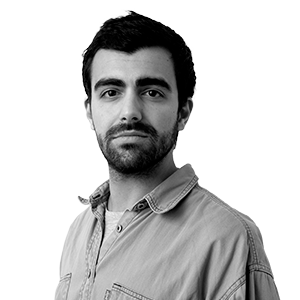A new drug has been approved for some cases of ALS: "It's a reason for hope."
Drugs targeting genetic alterations are making inroads into the treatment of a currently incurable disease.


BarcelonaIt has been three decades since a new therapy was approved for amyotrophic lateral sclerosis (ALS), a disease that currently offers no treatment and affects approximately 4,500 people across Spain. On Thursday, the Ministry of Health approved funding for Tofersén, an innovative treatment that helps preserve neuronal function and slow the progression of the disease in patients with a genetic cause. The mutation is present in a small percentage of diagnoses: one in ten patients has some alteration that experts believe could be used as a therapeutic target in the future. Currently, several clinical trials are underway studying other mutations to provide more therapies to modify the course of the disease and improve the quality of life of those affected.
"We are at a good point in the discovery of therapeutic targets, and there are very interesting studies underway that could open the door to new drugs," says Mònica Povedano, head of the Neurology Department at Bellvitge Hospital and researcher at Idibell. The drug approved in Spain, under the brand name Qalsody, is "a cause for hope" for all ALS patients with mutations in the SOD1 gene, which are responsible for a hereditary form of the disease that accounts for 2% of cases. In Catalonia, it is estimated that fewer than fifty people have been diagnosed with this disorder, according to the expert.
The European Medicines Agency (EMA) authorized this drug a year ago, and until now, some patients had received it for compassionate use, pending approval in Spain. "It's very important that it was approved because the laboratory stopped giving it to us for compassionate use, and we were stuck. It was a strange situation," Povedano emphasizes. Thus, the decision taken by the Interministerial Commission on Drug Prices (CIPM) to include it in the pharmaceutical benefits of the National Health System represents an innovation in a therapeutic area where pharmacological incorporations had not occurred since the 1990s. Once it begins to be administered to patients, professionals will have to monitor it to gather information about its approval.
"Unprecedented" recovery
Povedano insisted that ALS research is at an excellent moment, with several promising clinical trials underway. For example, this Friday The Lancet has published the conclusions of a study conducted by researchers at Columbia University in which they have managed to improve a group of patients with a rare and very aggressive type of ALS thanks to an experimental drug called Ulefnersen.
In fact, one of the patients treated in the trial regained the ability to walk unaided and breathe independently. This is an "unprecedented" functional recovery, according to the author of the article and researcher at the University, Neil Shneider. A second patient, who was asymptomatic when starting treatment, has not developed any symptoms in three years and the abnormal electrical activity of the muscles has improved.
The study was conducted with 12 patients, most of whom did not survive the disease. However, the therapy has managed to slow the disease in some of the participants, all of whom had a mutation in the FUS gene, which is responsible for between 1 and 2% of cases. This mutation causes some of the most aggressive forms and begins in adolescents and young adults.
